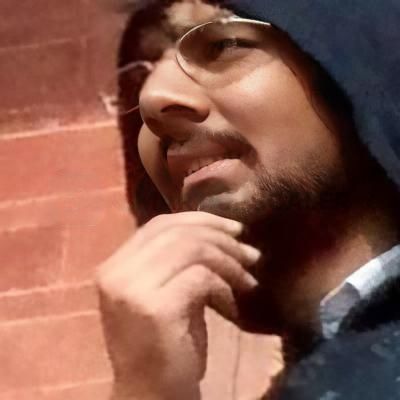
Rahul Gupta
Theoretical Physicist and Electrical Engineer
Independent Researcher and Software Developer
Standards Enthusiast (New✨)
Interested in all things Complex
Creator of Syntropize

Theoretical Physicist and Electrical Engineer
Independent Researcher and Software Developer
Standards Enthusiast (New✨)
Interested in all things Complex
Creator of Syntropize
I am interested in a wide variety of subjects, with a focus on understanding and mitigating complexity.
Complexity of Thought & Expression
The last 60 years have borne witness to unprecedented advances in computing technology, leading to the information revolution. But our collective failure to imagine software free from the constraints of the physical world has meant that computers are yet to fulfil their destiny as amplifiers of the mind. Syntropize is a proposal for a comprehensive redesign of the operating environment to reclaim the original vision of personal computers as the means to augment our intelligence.
Syntropize completely re-imagines the experience of using a personal computer. It has no notion of apps; instead, unified workspaces dynamically mix-and-match media elements based on context and user-intent, to present linked information from multiple sources in a seamless hypermedia environment. By ensuring that you have the right information, in the right form, at the right moment, Syntropize aims to unleash the critical thinking and creative potential of every individual and all society.
Complexity of the Universe
Using numerical simulations, we demonstrate that it is essential to consider the effects of inhomogeneities in matter distribution on the propagation of light beams while interpreting luminosity-redshift observations of ‘Type Ia’ Supernovae. Our failure to account for the complexity of the universe contributes towards an illusion of its accelerating expansion. The structure of matter in the universe might be thus sufficient to explain cosmic observations without the need to invoke exotic phenomena like dark energy.
Complexity of Power System Protection & Automation
Rapid advances in hardware technology have simultaneously been accompanied by the development and deployment of ever more sophisticated techniques and algorithms for the protection and automation of the electrical grid.
But, architecture and design of protective relays has not kept pace, leading to increased substation complexity that raises both costs and risk of failures.
We propose an Open Automation Framework to transparently integrate protection and automation functions within control panels to maximize reuse and redundancy. An open standard for design and architecture of protection and automation equipment will bring down the lifecycle costs of the automation infrastructure while simultaneously increasing the availability, reliability, and security of the substation.
A framework for Complexity
All of the above tie into my main interest, which is to understand complexity. Complexity pervades nature — it is what makes the world interesting. It is the defining feature of modern civilization. But our understanding of complexity is, at best, rudimentary. The consequences of which can range from the mildly wasteful to the absolutely catastrophic. And yet, we do not have a programme to understand complexity.
A General Theory of Systems provides the necessary conceptual framework to understand complexity from underlying principles that govern properties and behaviours of systems. Going into the future, this understanding of complexity will be essential to our ability to comprehend and cope with the world around us. The very success of our species will depend on it!
I am an author/co-author of a number of proposed internet specifications:
I have also contributed to the following proposed internet specifications:
Graduated 2nd in Class (of 120 students)
Bachelor of Engineering, Electrical and Electronics Engineering, Manipal Institute of Technology.
Recipient of the Indian Society of Lighting Engineers (ISLE) National Scholarship, 2006
Awarded to outstanding students in the field of Illumination Engineering.
Merit Certificate in English, All India Senior Secondary Examination, 2000
Awarded to less than 0.1% of examinees for exceptional performance in Grade X national examinations in India.
Qualified Stage I, National Talent Search Examination, 2000
National Talent Search Scheme is regarded as the most prestigious scholarship program at the high school level in India.